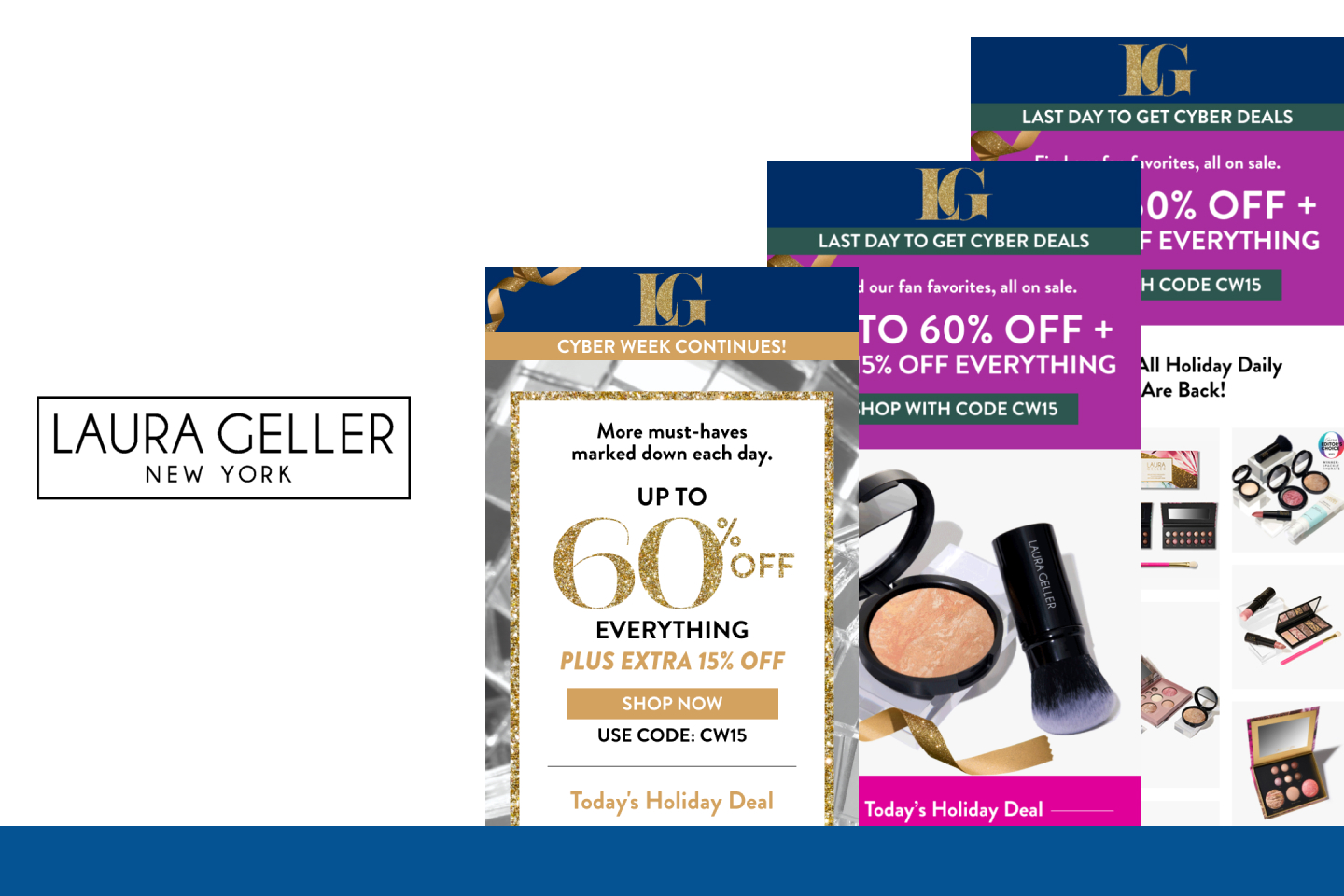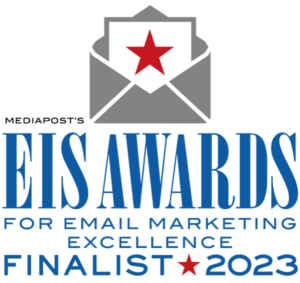“To improve is to change; to be perfect is to change often” Winston Churchill Subject lines… the easiest thing to write, the hardest thing to get right. There is just no single best practice, rule or tactic that works every time.
Symbols might produce killer open rates one week but that doesn’t mean every subsequent send should be jam-packed with ☀☀☀ and ☺☺☺. You have to keep your subscribers on their toes. The key is originality in moderation. But how much originality and how much moderation?
Email marketers are not very original
Team Alchemy Worx analyzed data within subject line testing tool Touchstone. Touchstone contains open, click and delivery rate data on subject lines from 21 billion emails that have been sent across various sectors and industries. It uses this data to predict how other subject lines will perform, so marketers can find simulate tests and find the best subject line for their campaign.In this case, the team used the wealth of data contained within Touchstone to identify how many subject lines could be classed as original, and how many were unoriginal – original being a subject line that contained at least one word the sender had never used before. You might think that with such a conservative definition for originality most marketing emails would be classified as ‘original’. But as the pie chart shows, less than a third were classified as original.
Original subject lines vs unoriginal subject lines
Original subject lines boost click rates. So what effect does originality (or unoriginality) have on open and click rates? The results who that while we only see a modest increase in open rates when using original words, we see a significant lift – 34% – in the unique click rate. So what’s happening? Using new and original subject lines triggers an entirely different subset of subscribers to open your emails – “Oh, this doesn’t look like the weekly newsletter I usually ignore”. And since first-time openers and long term inactives are more likely to click than regular openers, the click rate goes up. This also explains why the open rate does not increase as much as the click rate. Fewer regulars opened the email, but more irregulars did. And since irregular subscribers are more likely to convert following an open, the click rate is improved.
Originality is about more than vocabulary
But it’s not just the words themselves that contribute to originality and variety. The way the message is presented is just as important. These are called tactics. Look at these two subject lines about a re-brand: Celebrate our new look with a 10% saving on Apple, Sony & Coke We’ve changed – take a look! They are different because they use different tactics. The first is long, specific, multi proposition with a discount and brands. The second is short and intriguing.
It’s a common goal of A/B split testing to identify the tactic that works best. We have found this often only tells you which tactic worked best for that campaign and that attempts to repeat it offer diminishing gains.Here are the last two years’ of Alchemy Worx emails broken down by 15 common tactics.
Tactics for writing subject lines along with relevant open and click rates
With one or two exceptions there aren’t significant differences between the tactics. That’s because there is no single tactic that works all the time. It’s the change in approach that yields results and naturally these even out over time. And when you do find big differences, think of them as opportunities – so we should probably use symbols a little more and not worry about personalization!
Use tactics to write more varied subject lines
So, even though there is no golden tactic that works every time, the tactics themselves provide a structured framework for writing varied and original subject lines. Take the 4 subject lines below for the same re-brand e-shot and 10% discount: Enjoy a 10% discount and check out our new look. Get a 10% saving and see our new website. Save 10% and take a peek at our new brand. Here’s a 10% off code to celebrate our latest refresh. The only changes here are to the vocabulary.
Here are 15 different ways to write this same message using some of the most common subject line tactics (the color and formatting highlight the part of the subject line using the tactic):
Short – under 60 characters including spaces (keep it concise). “Celebrate our new look with a 10% saving”
Long – over 80 characters including spaces (you can add more personality and detail). “Help us celebrate our brand new look and enjoy 10% off as a thank you for your support”
Single proposition – mention only one part of the content of the email. “Check out our new look!”
Multi proposition – mention multiple parts of the content of the email. “See our new look, have 10% off and check out our hilarious new blog post and video”
Brands – use brand names in your subject line (if appropriate to you). “See our new look and enjoy 10% off Apple, Sony, Coke and more”
Symbols – use symbols (if appropriate). “Celebrate our new look with a 10% saving☺”
Promotional – get the promotion in, preferably up front. “Enjoy a 10% discount and check out our new look”
Personalization – use personalization (name, product, location, etc). “##name## see our new look and have 10% off”
Question – use a question, preferably open (i.e. the answer can’t be yes or no). “We’ve got a new look so what will your celebratory gift be?”
Urgency – add urgency with a specific time or limited time message. “See our new look now and enjoy 10% off today”
CTA – add prompts and imperatives to do something. “Open up, check out our new look and claim your 10% discount”
Benefit – say how your customer will benefit from the content of the email. “See our new look, get 10% off and get your new look for less”
Negative – phrase in a negative way or use a negative emotion (loss v gain). “We’ve changed but hurry or you’ll lose your 10% discount”
Intrigue – don’t give away the content of the email, make them open to find out. “Look – we’ve changed!”
Specific (no reflection) – say what’s in the email or be clear about the content. “We’ve got a new look and you’ve got a 10% discount”
For each tactic there will be many different ways to convey the message and still remain within the style of the tactic. You can play with the word order, change the tense or use a thesaurus to find different ways to say the same thing. You can also combine tactics.
Here small tweaks and additions to multi-tactic subject lines make subtle but noticeable differences:
Short + Single + Brands + Question + Urgency + Benefit. “Do you want to look sharp in Armani today?”
Short + Single + Brands + Question + Urgency + Benefit + Negative. “Don’t you want to look sharp in Armani today?”
Long + Single + Promotional + Personalization + Negative + Intrigue. “Dan, bet you never thought you’d see these five huge brands with a 10% discount”
Long + Promotional + Personalization + Negative + Intrigue + Brands + Multi. “Dan, bet you never thought you’d see Armani, D&G and Channel with a 10% discount”
Again, it’s important to remember that the tactics are being used as a framework to write varied and interesting subject lines, not to find which tactic works best for you. All of these tactics will work for you at some point, just as all of them will fail at some point. Once you are comfortable with the tactics, then writing 10, 20 even 30 varied subject lines on the same topic should become 2nd nature. And it’s that variety that is the key to a subject line strategy that embraces constant, strategic change.
Finally once you settle on a particular tactic for the next mailing make sure to test your options using Touchstone. It will instantly identify the best performing subject line, saving you valuable time and resource in your quest to boost engagement and maximize revenue.





